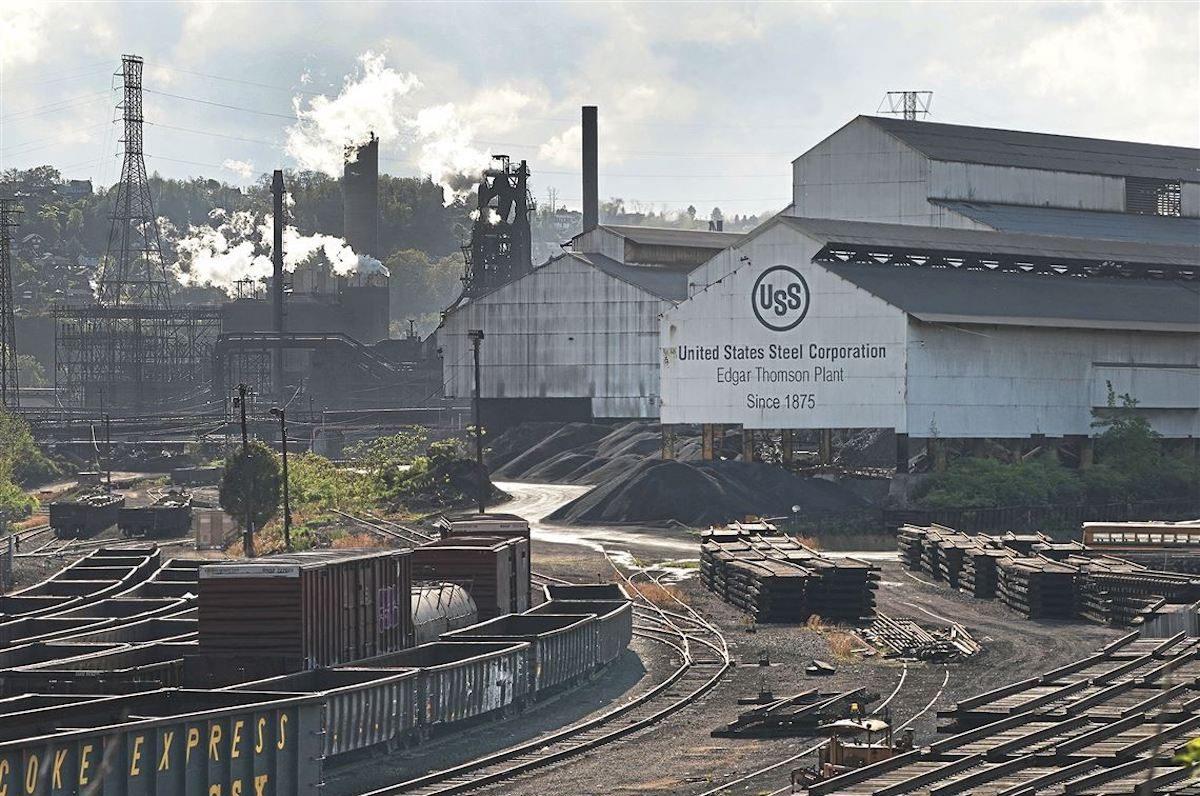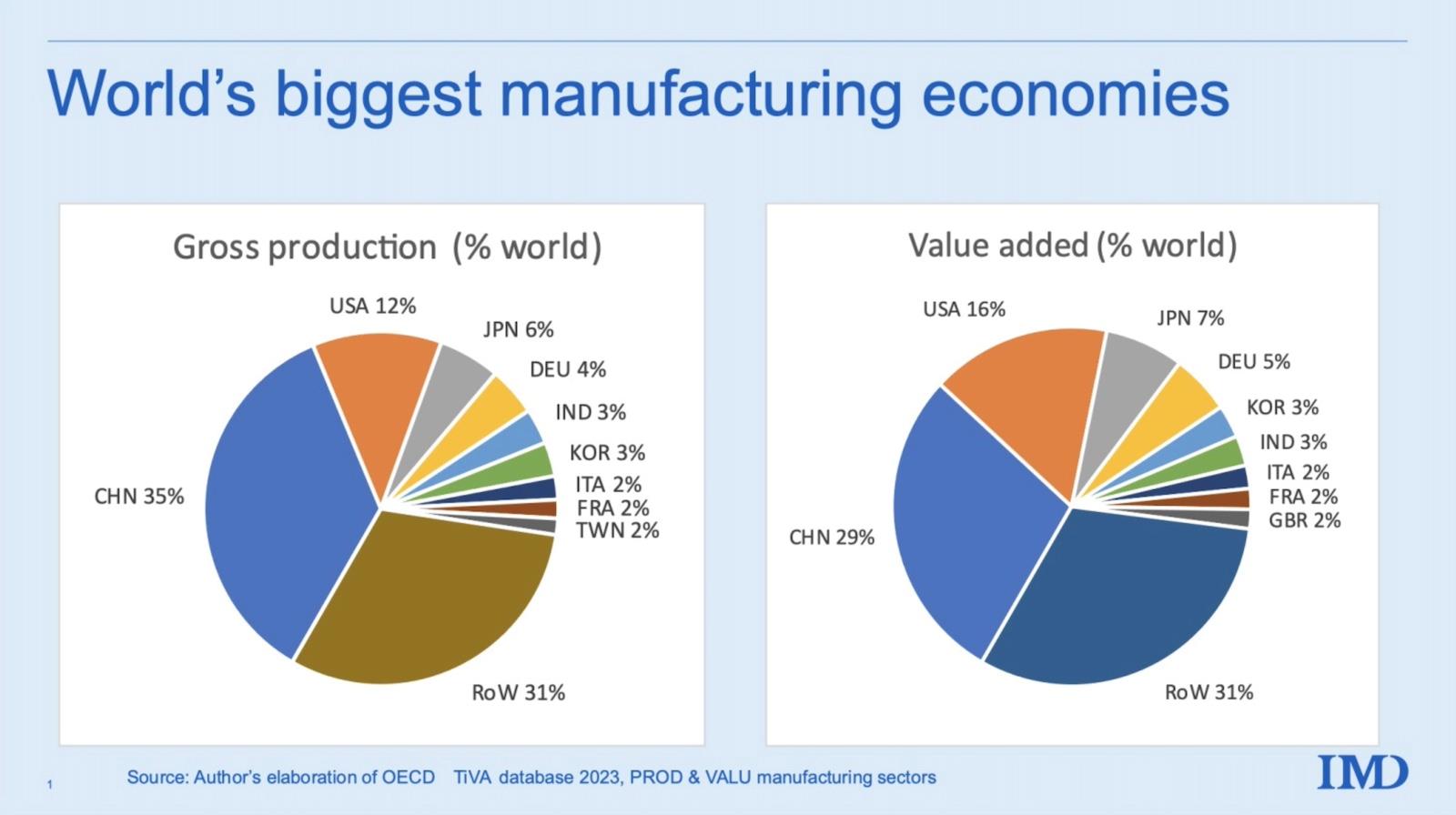Latest stories

The need to transcend carbon tunnel vision

More Afghan withdrawal fallout for the US

A novel analysis of gold's skyrocketing surge But the key provision is an agreement to cooperate on supply chains. The Center for American Progress, a progressive think tank, praised this part of the IPEF back in November:
This is all great stuff, and these sorts of institutions will definitely be needed if the US is going to decouple its supply chains from China. Simply knowing where components are sourced from is crucial in order to avoid fake decoupling, in which Chinese products are shipped to third countries for light assembly before being shipped on to the US.
IPEF will help monitor that, as well as observing choke points where China still controls key production bottlenecks, and helping figure out which other countries could provide alternatives.
But these are only a few tentative steps. There are still plenty of signs that the go-it-alone attitude of the Trump administration, which started trade wars with allies and rivals alike, still predominates in the Biden administration and in the larger progressive movement.
For one thing, the IPEF was originally designed with a trade deal as part of the overall framework. But Biden canceled this at the last minute , under pressure from other Democrats:
This demonstrates that US trade policy, like so many other aspects of US politics and society, is still living in the shadow of the 2016 election. Polls back this up - a 2023 survey by the Reagan Foundation found that“When asked which particular priorities should be a major focus of US foreign policy, protecting American jobs and companies ranks at the top of the list.” It's going to be a long time before American politicians are bold enough to make the case for trade with allies.
Without provisions that give Asian countries greater ability to sell components to US producers, the IPEF's supply chain provisions are just an information-gathering mechanism and a forum for conversation.
That's not useless, but if the US wants to actually get its supply chains out of China, its going to need to provide financial incentives for companies to source things from India, Japan, Indonesia, Korea, etc. Tariff reductions are one such financial incentive, but thanks to the spirit of 2016, these appear to be off the table.
Another example is the acquisition of US Steel. US Steel is a crappy company that has
never really done any innovation ; it's not even the biggest US steelmaker anymore, and it's in terminal decline. But when Japan's Nippon Steel offered to buy US Steel, Biden
publicly opposed the deal .
Progressives are trumpeting the decision. Todd Tucker, who handles trade policy for the influential Roosevelt Institute, and one of the leading progressive voices on industrial policy, praised Biden's move as“a foreign policy for the middle class”:
This is extremely foolish, for a number of reasons.
First, it's a slap in the face to a key US ally. Japanese leaders
were astonished , with one former government official saying“We thought we're completely aligned countries.”
This comes at a time when US-Japan cooperation is becoming increasingly crucial.
We need Japan
to help us stop China from dominating key strategic industries - semiconductors, batteries, magnets, etc.
And US defense manufacturing - hamstrung at home by a number of factors, including NEPA and other environmental permitting regulations that Todd Tucker strongly supports - is becoming increasingly dependent on allies like Japan who can actually build things.
At a time like this, treating Japan like a foreign adversary is an absolutely boneheaded diplomatic move.
Second, Tucker's framing of the deal as a choice between supporting an ally and supporting the US middle class is absolutely wrongheaded. As far as I can tell,
the steelworkers' union's fear
that a Japanese company would cut American jobs to preserve Japanese jobs seems rooted in absolutely nothing except instinctive fear of foreign ownership.
This has certainly not happened in the auto sector, where Japanese manufacturers are deeply invested in US production - most of the most“made in America” cars are made by Japanese brands , while US companies have consistently shipped more American auto manufacturing jobs overseas.

US Steel's Edgar Thomson Plant in Braddock, Pennsylvania. Photo: Twitter ScreengrabFurthermore, US Steel itself is
a dying entity . Despite the“US” in the name, it's not even the top American steelmaker - that would be
Nucor , which uses the far more advanced mini-mill technology (which is also much easier to decarbonize).
Without an acquisition, US Steel is destined for the scrap heap, and all of the good middle-class union manufacturing jobs it still supports will vanish into thin air. Of course, US Steel could theoretically be acquired by an American producer, but Cleveland-Cliffs, which Tucker cites as an alternative buyer,
appears to be backing out .
The Japanese company was essentially offering to do the US middle class a favor by buying the doomed husk of US Steel; now, all those steel jobs are in much greater danger.
As for Nippon Steel's factories in China, they're
a tiny part of its global production , and it's unclear why they would represent a strategic threat to the US in any case.
I suspect that beneath all the stated concerns, what Tucker and other opponents of the U.S. Steel deal really wanted was just any kind of a“win” - some kind of political victory they could point to and say“Look, worker power defeated the foreign corporations.”
If that win couldn't come against the US' real competitive threat, i.e. China, then it had to come against a weaker, more vulnerable ally like Japan. We punched down because we needed someone to punch. This was exactly Trump's reason for slapping steel tariffs on Japan, and Tucker's approving citation of J D Vance - a leading MAGA figure and Trump ally - suggests that the same sentiment is in operation now.
This is all incredibly frustrating. The skeletal remains of US manufacturing aren't threatened by Japan or Europe - they're threatened by China. It's China that managed to devastate the US middle-class manufacturing workforce in the 2000s - something trade with Japan, Europe, Mexico, etc never did.
It's China, not Japan or Europe, that
massively subsidizes its products
and floods foreign markets with its cars, chips, and electronics. It's China that
deliberately maintains control
over metals processing and other key choke points in the global manufacturing supply chain.
And China, currently, is winning the manufacturing race. Currently, it manufactures about as much as the US and all of its allies combined:

Source: Richard Baldwin The US will not be able to stand against that juggernaut by retreating behind a fortress of tariffs and trying to become an expensive, smaller mini-China.
The only way the US will be able to stand against that juggernaut is to get a big gang together. The US will have to weld the economies of the democratic nations into a single whole, sharing supply chains and markets and technology.
Only by doing this will we be able to match the incredible size and scope of the Chinese industrial machine.
The TPP would have been a first step toward creating that unified economic bastion, but the US killed it. The IPEF's trade component would have been an important step in that direction, but we killed that too.
Just like the people in the legend of
Pandora's Box , we rushed to shut the lid on trade agreements when all the monsters had already escaped, and the only thing we managed to lock in the box was Hope.
We may still have time to reverse course. Perhaps if Biden wins in 2024, and the electoral pressure is off, the administration will gain the political breathing room to turn the country toward strategic trade agreements with allies.

Sign up for one of our free newsletters The Daily ReportStart your day right with Asia Times' top stories AT Weekly ReportA weekly roundup of Asia Times' most-read stories
This will require some leadership from the Biden administration, and also some attitude adjustments on the part of the American intellectual class. Yes, free trade was bad in the 2000s. But Fortress America isn't a workable alternative.
This article was first published on Noah Smith's Noahpinion Substack and is republished with kind permission. Read the original and become a Noahopinion subscriber here.
Already have an account?Sign in Sign up here to comment on Asia Times stories OR Thank you for registering!
An account was already registered with this email. Please check your inbox for an authentication link.